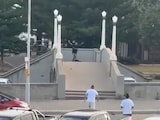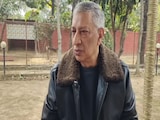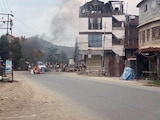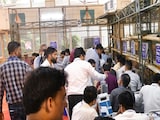The turbulence in the air generated during breathing has the potential to serve as a viable biometric authentication method for unlocking smartphones and other devices. What adds a unique aspect to this approach is its morbid advantage; unlike other tests like fingerprint scans, it cannot be passed by a dead person.
Mahesh Panchagnula and his team at the Indian Institute of Technology Madras in Chennai initiated experiments with breathing data recorded by an air pressure sensor out of sheer curiosity. Initially aimed at developing an AI model capable of identifying individuals with respiratory issues for medication purposes, the data unexpectedly revealed a wealth of information beyond their initial expectations.
New Scientist reported that the researchers at IIT Madras recorded 10 breaths from each of 94 human test subjects, using an air pressure sensor to take readings 10,000 times a second. That data was then fed into the AI model.
During their research, the researchers discovered that the model once it has analysed breath data from a particular subject, could verify that a new breath either did or did not come from that individual with more than 97 per cent accuracy.
In a subsequent trial where the model was tasked with identifying a breath without prior knowledge of the individual logging in, it demonstrated an accuracy of more than 50 per cent in correctly attributing the breath to one of two potential individuals.
According to Panchagnula, the AI model discerns distinctive patterns of turbulence arising from the unique anatomical configurations of each person's extrathoracic region, encompassing the nasal and oral passages, pharynx, and larynx.
He highlights that while there is room for significant enhancement through refinement, the initial findings affirm the feasibility of the concept. Despite the abundance of existing biometric systems, Panchagnula underscores a distinctive advantage of a breath test - its exclusive efficacy with living individuals. Notably, there have been reports suggesting the unlocking of a deceased person's smartphone through their fingerprint, a vulnerability effectively mitigated by the new system.
"You can't make a dead person pass this test because you need the person to exhale."















